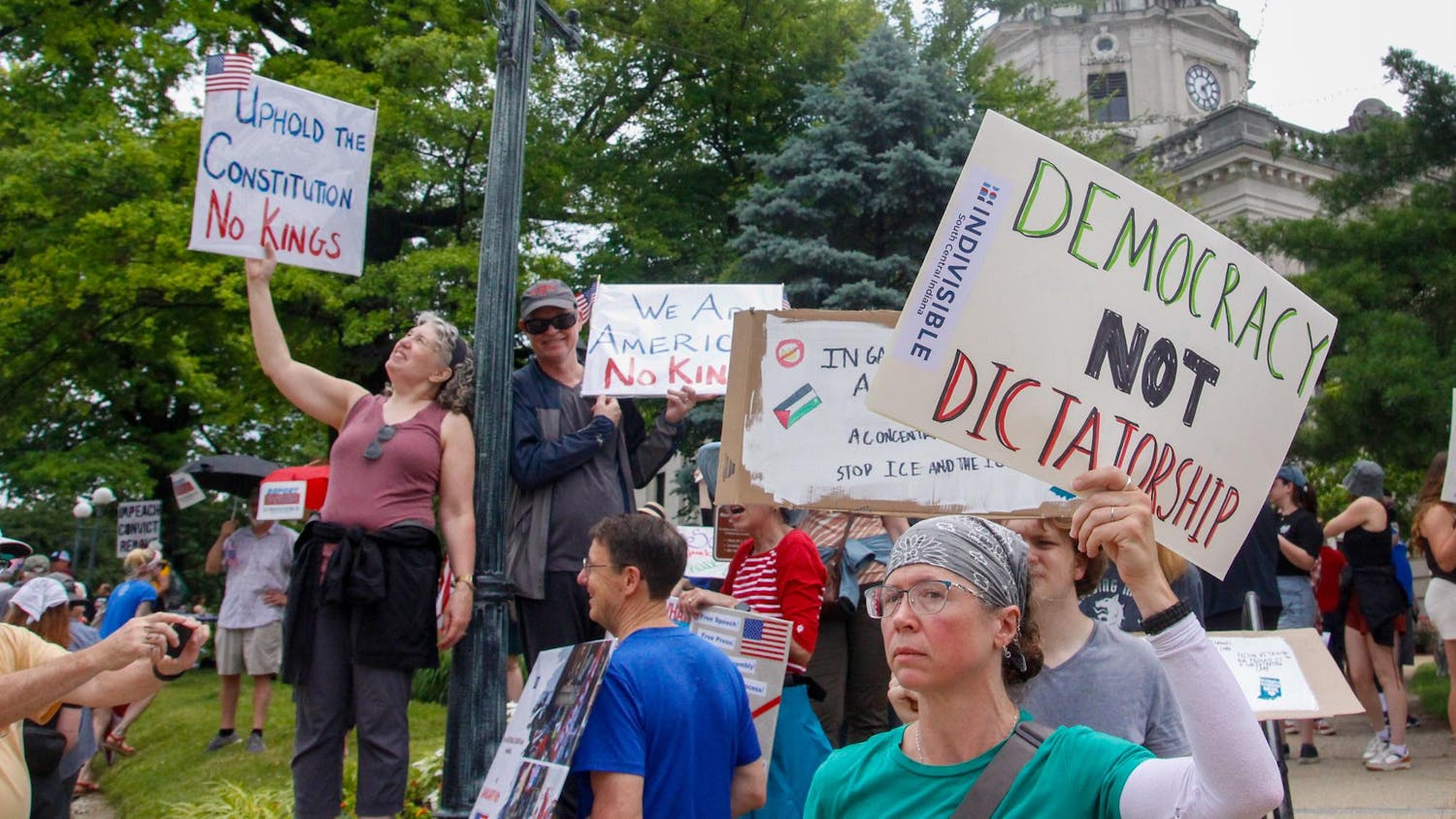ABU DIS, West Bank -- With the thud of tons of concrete hitting soft earth, Israel worked Monday to build a 25-foot-tall wall on the edge of Jerusalem, signaling that Israel's encirclement of the city is becoming permanent.\nThe wall, running down the center of a main road in the Palestinian neighborhood of Abu Dis, separates thousands of residents from Jerusalem, a city they consider home.\nThe towering new wall replaces a far shorter divider that had slowed, but not stopped, the flow of people and goods between the West Bank and Jerusalem in this area.\nIt is part of a barrier Israel is building around much of the West Bank with the stated aim of keeping out Palestinian militants responsible for suicide bombings that have killed hundreds of Israelis in the past three years.\nPalestinian leaders have reacted with anger to the building of the barrier, a line of walls, trenches, fences and razor wire that snakes through parts of West Bank land that Palestinians claim for a future state.\nPalestinian officials have taken to referring to the West Bank barrier as a new Berlin Wall. That wall -- built to prevent East Germans from fleeing to the West -- was between 11.5 feet and 13.8 feet tall.\nAlthough Israel says the barrier can be moved if the sides ever negotiate a peace treaty, Israel's critics say it is in effect creating a new border that gobbles up almost half the West Bank and cuts it off from Jerusalem.\nAlong its path, the barrier has cut Palestinians off from their fields and schools, their hospitals and businesses.\nBut in Abu Dis, a suburb in the shadow of Jerusalem's Mount of Olives, the new wall strikes far deeper emotional chords.\nDuring previous peace efforts, negotiators had proposed Abu Dis as the center of a compromise Palestinian capital that would have incorporated parts of east Jerusalem -- the part of the city that Israel captured in 1967 and that Palestinians want as their future capital.\nThe building slated to hold the future Palestinian parliament is in Abu Dis, as are many government offices. Palestinian Prime Minister Ahmed Qureia lives there.\nMany Abu Dis residents consider themselves Jerusalemites, carry the blue identification card of residents of Israel and pay Jerusalem city taxes. They go to Jerusalem for work and school, to shop and visit family, to collect marriage licenses and death certificates.\nBut the new wall puts a stop to that. With Arab neighborhoods on both sides, it also separates relatives.\n"This is unnatural and unacceptable," said Salah Bader, an Abu Dis official. "They are tightening the rope around our necks"\nConstruction crews arrived Saturday night and began tearing down the old 6-foot-tall concrete and barbed wire barrier that had become a local joke.\nStudents, laborers, businessmen in suits and even elderly women had scrambled over the barrier daily, stepping on boxes and large rocks to reach the top.\nBut there was no laughter Monday, when the construction crews erected in its place an impassable wall four times as tall that runs down the center of Shayah Street, a road of shops and apartments that marked the once invisible divide between Abu Dis and the Jerusalem neighborhood of Ras al Amud.\nAs earth movers ripped down the short, graffiti-scrawled old barrier, bulldozers dug out a long pit that cranes filled with the massive slabs of the new 25-foot-tall barrier.\nDefense Ministry officials said only two miles of the section of the barrier around Jerusalem would be a wall.\nThe construction here has dismayed and angered residents.\nZiad Abu Rmeine, a 30-year-old grocer whose store is on one side of the divide and whose house is on the other, watched as the new wall rose in front of his business.\nHalf his customers come from the West Bank side. Much of his fruit and vegetables do as well, and his suppliers used to hand him the crates over the shorter wall, an impossibility now.\nUnsure if there will even be checkpoints for him to cross, Abu Rmeine worries he will soon have to decide between his shrinking business and his wife and three children.\n"The wall ... is a final division. You have to choose which side to stay on," he said.\nThe Israeli Defense Ministry says it has not yet decided where to put the crossing points for the Jerusalem section of the barrier or how many there will be, but it anticipates they will help restore freedom of movement.\nNezah Mashiah, head of the barrier project at the ministry, says the wall in Abu Dis is being built so high to protect against a direct line of fire from long-range weapons.\nThe previous, shorter obstacle was not actually part of the official security barrier, he said. "That was nothing, just something built by local forces," Mashiah said.
Israel builds wall to encircle Jerusalem
Palestinians worry that wall will affect travel, trade
Get stories like this in your inbox
Subscribe



